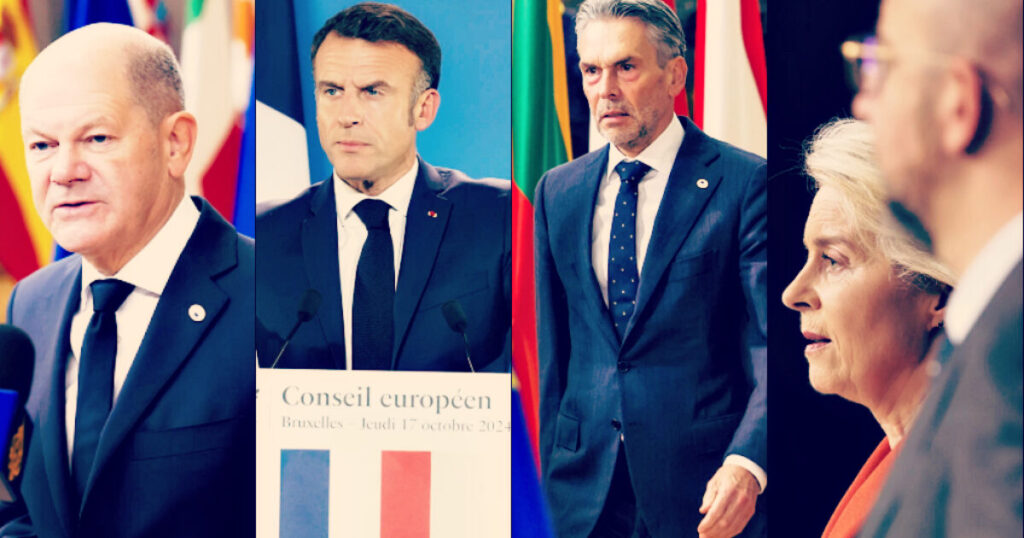The political landscape in Europe has dramatically shifted as leaders respond to the rise of far-right parties, with a newfound urgency to reassess migration policies. At a recent summit held on October 17, 2023, in Brussels, European Union leaders convened to discuss the pressing need to revise asylum framework and create measures that would render Europe a less appealing destination for migrants and asylum seekers. One of the primary focuses involved strategies to expedite the removal of ‘unwanted’ illegal migrants from the continent while concurrently establishing systems to process asylum applications outside of Europe. This marks a significant departure from previous EU policies that tended toward accepting mass migration, reflecting a collective panic among leaders in the aftermath of multiple elections that saw far-right parties gaining traction across member nations.
The rhetoric emerging from this gathering underscores a palpable shift in sentiment among EU leaders, notably articulated by Dutch Prime Minister Dick Schoof. He highlighted the changing atmosphere, acknowledging that voters’ concerns regarding immigration and crime have amplified significantly. Danish Prime Minister Mette Frederiksen echoed this sentiment, describing earlier discussions around migration as ‘shouting in an empty sports hall.’ With a growing consensus against unchecked migration, leaders are beginning to acknowledge the limits of their capacity to assist those in need, especially in light of rising crime rates allegedly associated with certain migrant groups. This marked change in public sentiment and political priorities suggests a turning point in how European nations approach immigration, as they begin to reclaim agency over their borders.
The decision to create a ‘Fortress Europe’ arises from the profound social and economic ramifications that mass migration has wrought over the past decade. The fallout from the influx of millions of illegal migrants has strained social cohesion and exacerbated existing crises within EU nations, particularly highlighted during the tenure of former Chancellor Angela Merkel, who confidently stated, ‘We can manage that.’ The current situation is starkly contrasted by the reality that many critics foresaw; they cautioned that the EU’s approach would lead to significant detriment to European societies. As a result, leaders are now pushing to implement stricter border control measures and embrace strategies that would have been deemed unacceptable only a few years prior.
Specific measures being discussed include the temporary suspension of asylum rights in Poland, the establishment of processing centers in Italy to handle asylum applications outside EU borders, and the reintroduction of border controls in Germany. Such actions reflect a concerted effort among the 27 member states to prevent illegal entry while seeking to streamline the asylum process by evaluating migrant qualifications for protection beyond European soil. Notably, even as Europe welcomed approximately 3.5 million legal migrants in 2023, about 1 million individuals remain in the EU without permission, intensifying the call for stricter immigration policies amidst the growing influence of populist and right-wing parties.
Chancellor Olaf Scholz of Germany has positioned himself amid this shifting landscape, declaring the new asylum system as ‘great progress’ and advocating for its rapid implementation across Europe. This sentiment emphasizes a crucial realization that not everyone can be accommodated within Europe’s borders. Scholz’s acknowledgment that the reduction of irregular migration is essential for maintaining the openness that Europe desires illustrates a key ideological transformation among leaders who previously resisted such notions. Moreover, a letter from EU Commission President Ursula von der Leyen reinforced the urgency of these discussions, urging leaders to avoid complacency and accelerate the realization of migration reforms outlined in a comprehensive 2026 plan.
In addition to immediate reforms, the summit delved into innovative solutions for managing migrants, with leaders exploring the outsourcing of asylum applications to nations such as Uganda, as proposed by Schoof. These initiatives signal a willingness to break from traditional models of asylum processing within Europe, providing alternative solutions to mitigate the challenges posed by migration. Polish Prime Minister Donald Tusk’s proposition to suspend the right to asylum represents a significant departure from post-World War II norms, revealing how drastically the political climate has shifted in response to growing public discontent regarding immigration. The collective considerations raised during this summit signify a pivotal moment in European politics, as leaders confront the realities of managing migration effectively.

